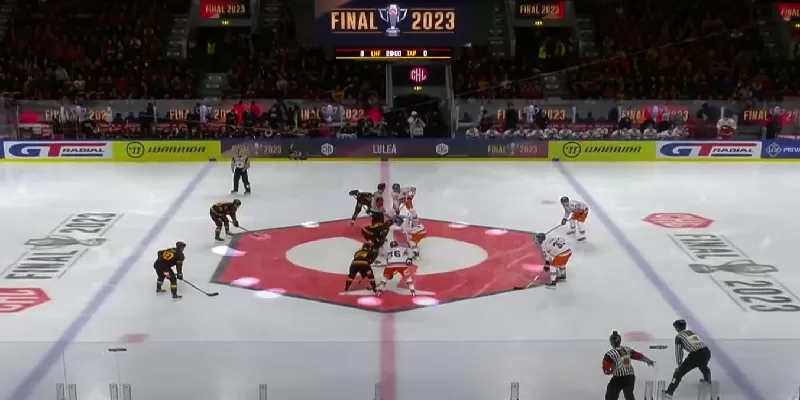
Introduce The Role of Ice Hockey Referee In The Game
Normally, there are two referees and two linesmen in the ice hockey game officiating team. The two referees are responsible for overseeing the overall game, enforcing the rules, and making decisions on goals and penalties. The linesmen, on the other hand, focus on calling offsides, icings, and conducting faceoffs.
The duty of ice hockey referees
Rule Enforcement
Referees are responsible for enforcing the rules of the game. They must have a thorough knowledge of the rulebook and ensure that both teams adhere to the regulations. This includes penalizing players for infractions such as tripping, slashing, high-sticking, and other rule violations.
Game Control
Referees help maintain control of the game by managing player conduct, preventing fights, and ensuring a safe playing environment. They have the authority to assess penalties, including sending players to the penalty box for a designated period.
Faceoffs and Drop Pucks
Referees are responsible for conducting faceoffs to restart play after stoppages. They drop the puck at the center ice faceoff circle to initiate the game, after goals, and following other interruptions.
Goal and Non-Goal Decisions:
Referees play a crucial role in determining whether a goal is valid. They consult with other officials to ensure accuracy in making decisions related to goals, whether it’s assessing potential goaltender interference or determining if the puck crossed the goal line.
Officiating Team
In addition to the main referee, there are typically two linesmen who assist in making calls, especially related to offsides and icing. The officiating team works together to ensure the smooth flow of the game and to make accurate decisions.
Communication
Referees communicate with players, coaches, and other officials throughout the game. They may explain rule violations, announce penalties, and address concerns from both teams. Effective communication is crucial in maintaining order on the ice.
Ensure the safety of the players
Referees are responsible for the safety of the players. They have the authority to assess penalties for actions that pose a threat to the well-being of players, and they play a role in preventing and managing any on-ice altercations.
Game Timekeeping
Referees are also responsible for keeping track of game time, including stoppages, and ensuring that the game progresses according to the scheduled time.
